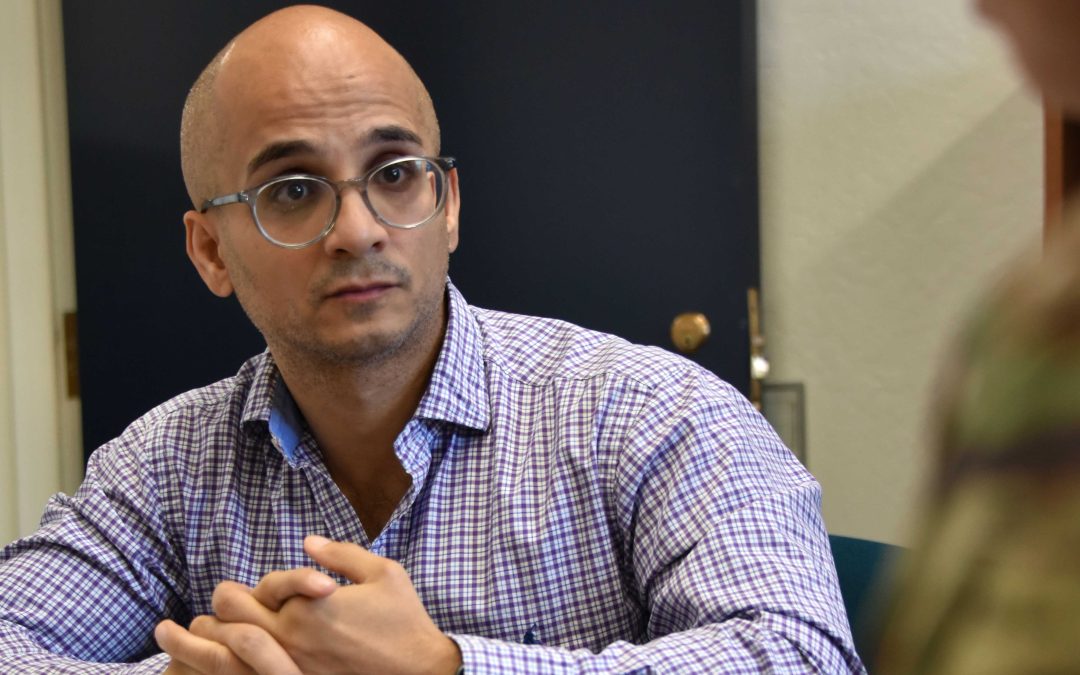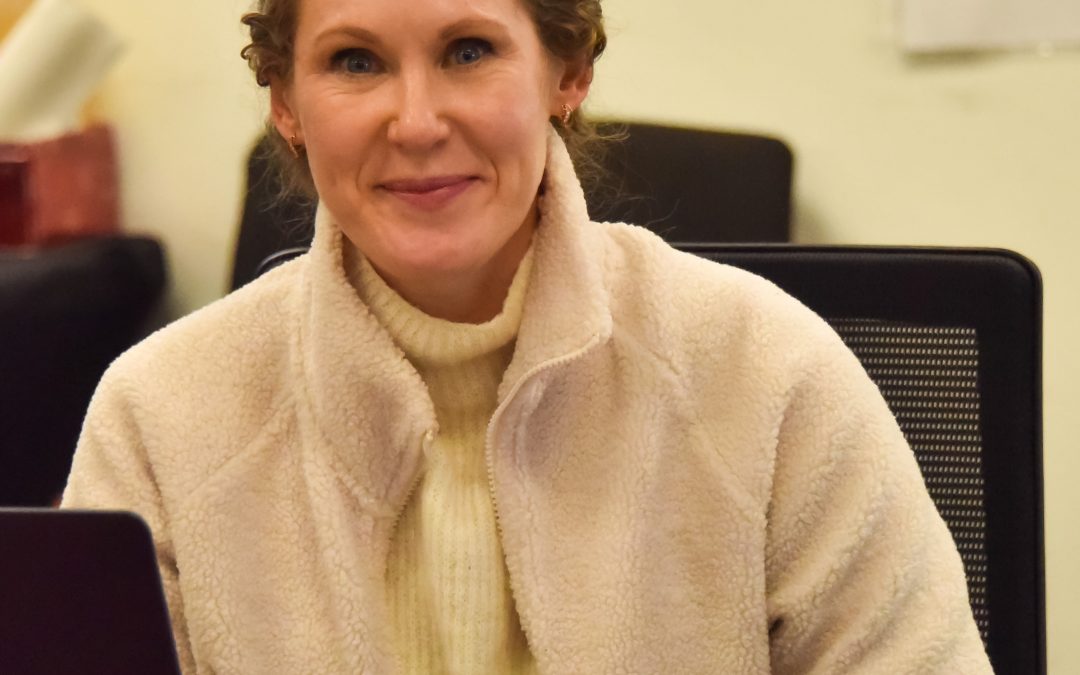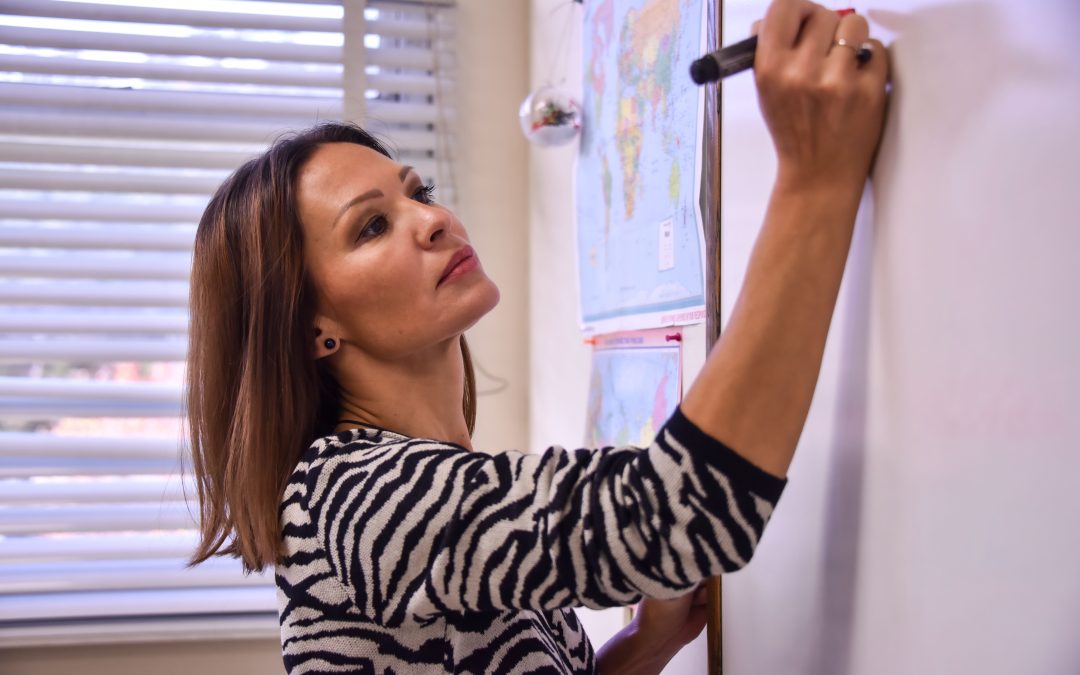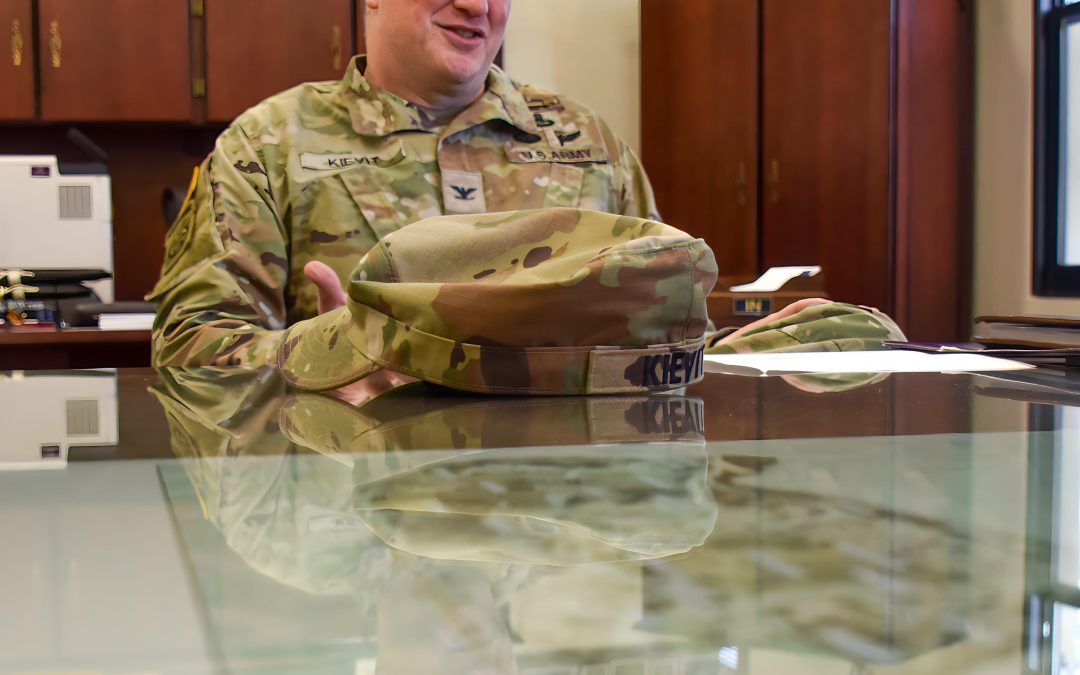By Natela Cutter
DLIFLC Public Affairs

For the first time in the history of the Defense Language Institute Foreign Language Center, two Military Language Instructors received the Army Instructor Badge, which puts them on par with their peers and enables them to better compete for promotion. (U.S. Army photo by Amber K. Whittington)
MONTEREY, Calif. – “I believe the Army recognized it for what it is, and as a result I was selected for promotion to sergeant first class,” said Staff Sgt. Garrick Bartlett, who is a MLI in the Multi-Language School and has been recognized three times as the military instructor of the quarter, while simultaneously pursuing his Master degree in higher education.
MLIs are a vital part of the education construct at DLIFLC, where eight separate foreign language schools are managed by a mix of military and civilian instructors and leadership. MLIs not only teach the foreign language in the schools, but also manage student linguist careers and maintain open channels of communication between civilian management and military units.
“Our goal was to validate the role of the MLIs as instructors Army-wide and align them directly with their leader peers,” said Sgt. 1st Class Sean Cherland, adding that it is vital that Army “leadership outside of DLI is aware of their qualifications as instructors.”
“Historically, the role of MLIs is not well understood outside of DLI and was seldom acknowledged by TRADOC. They only received a local badge….and didn’t have anything that recognized them Army-wide,” Cherland said.
In the making for more than two years, the key to success for the program was the enabling of the MLI’s to complete the Army Training and Doctrine Command course called the Foundation Instructor Facilitator Course, which is designed to train new instructors on how facilitate basic courses and learn instructional techniques.

For the first time in the history of the Defense Language Institute Foreign Language Center, two Military Language Instructors received the Army Instructor Badge, which puts them on par with their peers and enables them to better compete for promotion. (U.S. Army photo by Amber K. Whittington)
In the making for more than two years, the key to success for the program was the enabling of the MLI’s to complete the Army Training and Doctrine Command course called the Foundation Instructor Facilitator Course, which is designed to train new instructors on how to facilitate basic courses and learn instructional techniques. Utilizing the concept of One Army School System, DLIFLC leadership collaborated with the 223rd Regional Training Institute, located in San Lois Obispo, to co-conduct the FIFC courses and certify DLIFLC instructors as well as DLIFLC FIFC trainers.
“It takes a network of people to build a program,” said DLIFLC Commandant Col. Phil Deppert, who gave closing remarks and congratulated the team of senior noncommissioned officer leadership who worked diligently to develop the program.
Thus far, 20 Army NCOs have completed the FIFC course which certifies them as instructors under TRADOC and allows them to participate in the Instructor Development and Recognition Program. More than 100 MLIs currently work in the school houses, of which 54 are Army NCOs.
Awarding the Army Instructor Badge to DLIFLC NCOs goes hand in hand with the Army University construct that aims to maximize educational opportunities for Soldiers by providing valid academic credit for the education and experience they receive while on active duty.
DLIFLC provides resident instruction in 17 languages at the Presidio of Monterey, California, with the capacity to instruct another 65 languages in Washington, D.C., and has graduated more than 220,000 linguists since 1941.




